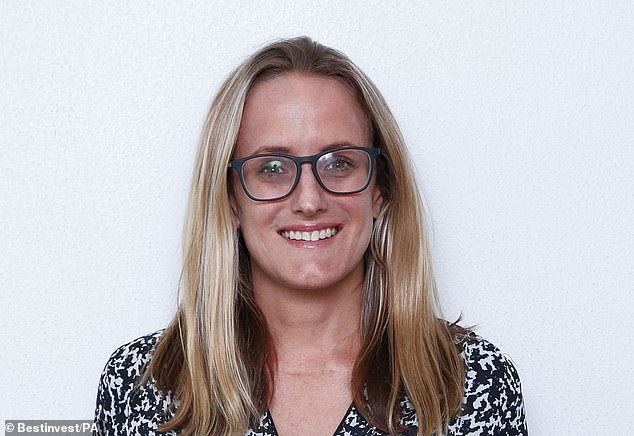There is one secret weapon that financial experts agree every household should have to protect them in difficult times.
An emergency cash buffer safely stashed in a savings account is key to weathering storms in financial markets, such as the recent turbulence after President Trump’s tariff announcements.
And it is indispensable to get you through life events such as unexpected redundancy, illness or an increase in mortgage payments.
Finding money to put aside for the future is a big ask when household finances are strained day to day. As many as a third of all adults have under £1,000 saved, according to financial website money.co.uk. The proportion is almost twice as high for those in their 20s and 30s.
But a buffer is the very foundation of sound personal finances. Once in place and untouched, it frees you up to invest and grow your money or spend it on luxuries or whatever you choose.
So how much cash should you hold? Experts say the amount varies dramatically depending on how old you are.
Here, Money Mail reveals how much you need to have saved at every age.

The amount that experts say you should have saved is based on outgoings rather than income
Why do I need one?
Having some cash saved in case something goes wrong can mean the difference between keeping your finances on track and going off the rails. Say your car broke down or the boiler packed in. Savings would allow you to pay for the repairs without worrying how you would absorb the cost or going into debt.
Secondly, a cash buffer protects you from market storms. When you are investing, the last thing you want is to be forced to sell investments because you need the money when markets are down.
Doing so means you lock in your losses and miss the opportunity for your investments to recover. Having money in cash means you can spend that instead of selling investments.
However, holding too much cash can also be a mistake. Investing tends to produce higher returns than holding cash in a savings account, so you curb your ability really to grow your wealth.
Mark Incledon, chief executive of Bowmore Financial Planning, is one of many financial experts who believes that as a starting point, you should have between three and six months of spending tucked away in cash.
However, the actual figure you will need depends on what is going on in your life – as we explain below.
To work out how much you need saved, we looked at the average income for each age group, using official figures from the Office for National Statistics (ONS).
However, the amount that experts say you should have saved is based on outgoings rather than income. So we subtracted income tax, National Insurance and pension contributions at 5 pc for those of working age. We also subtracted the amount that people typically save at each age group because you are unlikely to be saving at a time that you need to tap into your emergency fund.
Cash savings can be protected from tax if kept in an individual savings account (Isa).
Ages 18 to 21
At this age you may be studying or in a part-time job, so average annual earnings after tax are just £13,750, according to the ONS. Your outgoings are typically £13,507 a year as you only save around £243.
This means you don’t need a huge amount in savings. A three-month buffer would be £3,377 and six-month £6,754, but you may need less than this.
Your ability to deal with a financial emergency will also depend on how much you typically spend on essentials and how much on nice-to-haves. If you have a large disposable income and few fixed outgoings – for example, if you are living at home – you may need less of a buffer. However, you may want to increase your savings if you can to build up a home deposit and boost your financial independence.
Ages 22 to 29
Earnings increase to an average of £24,911 a year in your mid- to late-20s as you get your foot on the career ladder.
Outgoings are typically £24,239, which means you’ll need between £6,060 and £12,120 in your cash buffer. If you’ve just started work and are renting or paying a mortgage for the first time, you are unlikely to have much disposable income to cut back on in an emergency.
That makes a cash buffer particularly important.
Alice Haine, personal finance analyst at Evelyn Partners, says: ‘Young people starting out after university may have the support of the Bank of Mum and Dad but an emergency fund is just as important. They have still got to pay the bills on time and stay on top of debt.’
Young people are more likely to be in temporary jobs, making career switches or taking breaks to travel, which could make earnings unstable. A cash buffer means you won’t be caught short while looking for a new job.

As the average first-time buyer is 33, at this stage of your life you may need to pay for the costs of running a home, including a mortgage
Ages 30 to 39
Your salary is likely to increase in your 30s – but so too will your outgoings as your responsibilities grow.
As the average first-time buyer is 33, you may now need to pay for the costs of running a home, including a mortgage. Plus, your family may be growing. You will need between £7,195 and £14,390 stashed away. Your spouse or partner should also have this amount in cash if they can.
Anita Wright, financial planner at Bolton James, says women could take maternity leave in this decade, which will reduce household earnings. A cash buffer can supplement your statutory maternity pay.
As you will probably own your own home, you will now need to pay out of your own pocket for boiler mishaps or burst pipes.
But Alexandra Loydon, of wealth manager St James’s Place, says that this age group may want to consider critical illness protection and life insurance – especially if you have a mortgage or a growing family.
‘Even a 12-month emergency buffer won’t protect against long-term sickness,’ she says.
Ages 40 to 49
In this decade your salary typically reaches its peak (an average of £43,545) – as do your outgoings. Those in their 40s spend the most out of all age groups, at £31,085 each. This means you’ll need between £7,771 and £15,543 saved.
Spending may include ever-increasing private school fees or caring for ailing parents.
Some parents had to stump up 20 pc more for their children’s education this January when VAT became payable on school fees.
The move has squeezed many middle-class families, with some pulling their children out of the private school system.
But struggling parents with a cash buffer can dip into it while they try to raise long-term funds for fees or reassess their budget.
And, while it is uncomfortable to think about, that buffer could come in useful if a divorce or separation is on the cards.
Ms Wright says: ‘It’s a threat. At this age, there’s a greater chance of relationship breakdown.’

Alice Haine, personal finance analyst at Evelyn Partners, says that for young people who may have the support of the Bank of Mum and Dad after university an emergency fund is still key
Ages 50 to 59
Your salary typically falls slightly in your 50s to £42,055 on average – perhaps as you change jobs – but your spending falls, too, to £30,873. This means your cash buffer should be between £7,718 and £15,436.
Funding your children through university may be a drain on your finances in your 50s but also remember that the cost of living can increase at any time, says Ms Loydon.
Inflation peaked at 11.1 pc in October 2022, which unexpectedly squeezed household finances.
An unexpected surge in inflation can also hike your mortgage costs – especially if you have a tracker or variable-rate mortgage. If wages do not increase at the same pace, your emergency fund will come in handy.
Age 60-plus – and working
Spending tends to drop at this age. The average worker aged 60 or over earns £33,196 a year and spends £25,605 of it.
This means you need £6,401 to £12,803 in cash.
However, you may well want far more than three to six months of outgoings in cash if you plan to spend some of your pension savings in the next few years. That way, if markets have fallen you can use the cash instead of selling pension investments and crystallising your losses.
Ms Haine says: ‘If you are about to retire, you wouldn’t want to draw your pension and sell assets at the wrong moment. In a year you may want to access your tax-free lump sum but then you get there and the market has crashed.’
Mr Incledon adds that large cash buffers are useful at this age for those with private health care because you may want to start paying for medical bills yourself.
‘It might get to a point where couples need to self-insure as premiums will be too high for any medical insurance,’ he says.
Retirement
Your outgoings are likely to drop if you have paid off the mortgage and the children have flown the nest.
Your income has probably reduced significantly too because the average post-tax pension income is £19,445.
But this doesn’t mean you’ll need a smaller emergency cash pot – far from it. In fact, you should have two years of outgoings stashed away in cash, Ms Haine says, some £38,891.
Unless you have a gold-plated defined benefit pension, you will typically be relying on an invested pension pot to fund your silver years, along with the state pension.
These retirement savings could be used to purchase an annuity – a guaranteed annual income – but if not, it will instead be left to grow in investments. This means it could take a battering in times of market downturns, as seen when billions of pounds were wiped from UK pension funds in the wake of Trump’s Liberation Day.
But you can withdraw from a cash buffer while the markets recover – two years is typically plenty of time for this to happen – instead of selling investments at the wrong moment.
Even if you do have a final salary pension, you should still have substantial cash savings.
Ms Loydon says: ‘Those with a final salary pension have a secured income, but are less able to absorb cost in the event of unexpected events, such as having to pay for care because their income is fixed.’
- How much do you keep in your cash buffer? Email l.evans@dailymail.co.uk
Some links in this article may be affiliate links. If you click on them we may earn a small commission. That helps us fund This Is Money, and keep it free to use. We do not write articles to promote products. We do not allow any commercial relationship to affect our editorial independence.







